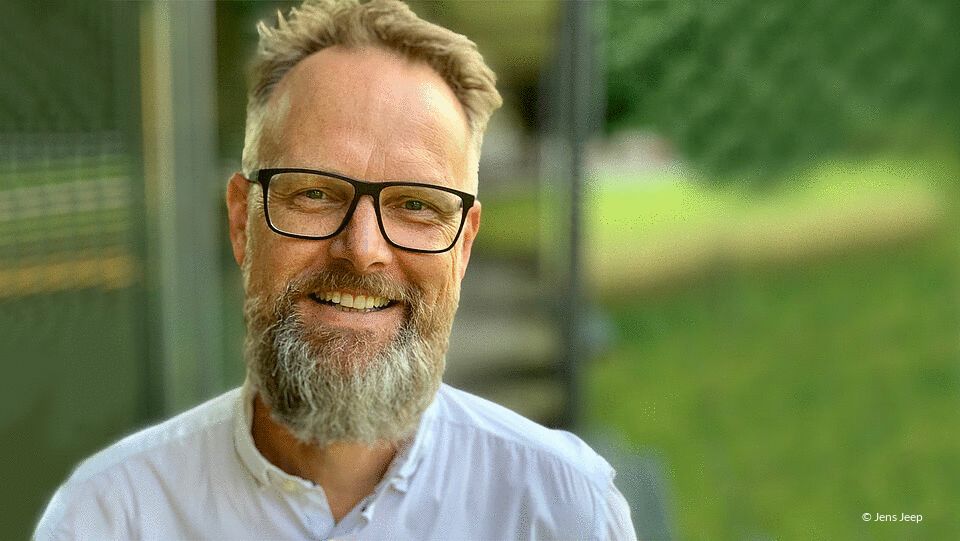What will actually happen when Tegel Airport closes? Answers to this question will be provided at the 10th Public Site Conference on 12 February 2020. In the run-up to the event, partners will talk about the significance of the post-use plans and Berlin’s path to becoming a smart city. Prof. Dr. Steffen Prowe, Professor of Microbiology at Beuth University, is looking forward to the “huge opportunity” and “teaching in an architectural monument”.
With the announcement of the BER opening date, the subsequent use of Tegel is also coming within reach. What are your personal expectations of the Urban Tech Republic and the Schumacher Quartier and what significance do the two projects have for Berlin?
For this 5 km2 area, including the terminal, Berlin has the unique opportunity to redesign a part of this city in a new and innovative way, almost like on a blank sheet of paper. The concepts that have been presented to the public so far show what a signal effect this project can have internationally if the potential is realised courageously. The fact that we, as Beuth University of Applied Sciences, are allowed to become part of the whole here is a huge opportunity. Because being able to hold part of our teaching in an architectural monument is inspiring for students and teachers. From our Life Sciences and Technology department, colleagues from the Horticultural Phytotechnology and Landscape Architecture programmes have the chance to help shape this “open space laboratory” of urban development and make it tangible in their teaching. This ranges from open space design to commercial plant use in the city. In addition, these disciplines can integrate current digital and analogue technologies. Overall, there is an opportunity to build a green, liveable district for living, working, education, innovation and leisure and to be part of it as a university.
How far along is Berlin, in your view, on the path to becoming a smart city and where do you see the greatest need for action?
Smart City is a big term. But I think that Berlin is already experiencing elements of Smart City, i.e. socially inclusive and sustainable structures, in parts of its typical neighbourhoods. If Berlin succeeds in awakening commitment to its own future, there is great potential here. Because if Berliners get involved together in the sense of “res publica” – i.e. civic affairs – they will also drive or actively involve Berlin’s rather slow administration in these matters to implement sustainable concepts for housing, mobility, as well as decentralised energy supply for the “city of the future”. In Germany as a whole, we have a tangible deficit in implementing innovations quickly, for example in digitalisation. However, this well-prepared TXL after-use project offers the chance to implement it as a blueprint. And it will demonstrate the importance of science and education for this city across many disciplines, clearly recognised by current Berlin politics. It is feasible to tackle the “Smart City” from here, analogous to Jan Gehl’s “Cities for People”, also with a view to mobility that is compatible for urban dwellers.
When you think about the future, what would be your personal greatest wish for Berlin in 2030?
In 2030, when I’m almost retired, I’d like to be able to continue to be mobile in a safe and healthy way by bike or flexible public transport. I’d like to spend my last years at Beuth University cycling from Wedding to Tegel on a new cycle path to the technology and education hub of the TXL Urban Tech Republic. And I would like to see our city remain green and liveable despite the increase in people. This is possible through less traffic (the air traffic is fortunately so close to our heads) combined with great technological steps and the use of sustainable technologies. I would very much like to contribute to this by 2030 together with my colleagues at Beuth University. That’s why I’m very happy to continue actively supporting the concept of TXL reuse.
Prof. Dr. Steffen Prowe has been Professor of Microbiology (Biotechnology programme) at Beuth University of Applied Sciences Berlin since 2009. He is also Dean of the Department of Life Sciences and Technology and a member of the Academic Senate and the Academic Assembly. The Beuth University of Applied Sciences will also be present at the location conference as one of our partners.
